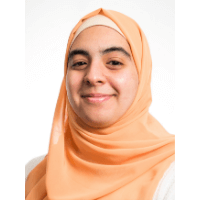Nutan Chaudhari - PhD Candidate
 Nutan is a PhD student at the Burn Injury Research Unit at the University of Western Australia. Her PhD project involves the development of novel therapeutics for the treatment of scarring and skin fibrosis. Her project is in collaboration with an industry where they developed a mechanism-based Lysyl Oxidase inhibitor which inhibits the collagen crosslink process in scar formation. The project will now lead to the Phase I clinical trials for anti-scarring treatment.
Nutan is a PhD student at the Burn Injury Research Unit at the University of Western Australia. Her PhD project involves the development of novel therapeutics for the treatment of scarring and skin fibrosis. Her project is in collaboration with an industry where they developed a mechanism-based Lysyl Oxidase inhibitor which inhibits the collagen crosslink process in scar formation. The project will now lead to the Phase I clinical trials for anti-scarring treatment.
Zhenjun Deng - PhD Candidate
 Zhenjun Deng’s PhD project is focused on the role of cell and extracellular interactions in the pathology of keloids and idiopathic pulmonary fibrosis.
Zhenjun Deng’s PhD project is focused on the role of cell and extracellular interactions in the pathology of keloids and idiopathic pulmonary fibrosis.
She also works on investigating the dysregulated genes in keloids and idiopathic pulmonary fibrosis via bioinformatic analysis of RNA sequencing.
Blair Johnson - PhD Candidate
 Blair is a PhD student at the University of Western Australia with an interest in burns as a chronic disease. His research covers two focus areas: the long-term effect of burn injuries on the immune system, and the long term effect on platelet function. Our current understanding of burn injuries suggests that the injury results in a sustained shift in the immune system that can manifest as a range of diseases in subsequent years.
Blair is a PhD student at the University of Western Australia with an interest in burns as a chronic disease. His research covers two focus areas: the long-term effect of burn injuries on the immune system, and the long term effect on platelet function. Our current understanding of burn injuries suggests that the injury results in a sustained shift in the immune system that can manifest as a range of diseases in subsequent years.
Blair's approach involves the collection and analysis of complex datasets to determine how the immune cells in burn survivors are different from those without injury. His work with platelets aims to understand how burns affect platelet reactivity and whether this contributes to post-burn cardiovascular disease risk.
Amira Allaham - PhD Candidate
 Amira is a PhD student at the University of Western Australia studying the effect of burn injuries on the brain and mental health. Previous studies have shown an increase in the rate of mental health issues including depression and anxiety following burn injuries. This increase is likely associated with the inflammatory response accompanying burns.
Amira is a PhD student at the University of Western Australia studying the effect of burn injuries on the brain and mental health. Previous studies have shown an increase in the rate of mental health issues including depression and anxiety following burn injuries. This increase is likely associated with the inflammatory response accompanying burns.
Amira's research uses animal models to look at the effects of burn injuries on behaviour and inflammation in the brain and relates it to mental health issues in humans. Her research also covers the changes in the biodiversity of gut bacteria following burns as it is likely related to the changes in the brain through the gut's neural pathways. Amira's work aims to understand the factors associated with the development of mental health issues following burns and therefore help in their prevention and treatment.
Tylah Miles - PhD Candidate
Tylah Miles is a PhD student at the University of Western Australia. Her research focuses on idiopathic pulmonary fibrosis (IPF), a debilitating and terminal lung disease with limited treatment options available to patients.
Tylah is investigating how immune cells and fibroblasts behave in response to stress signals released from damaged airway cells and how this regulates lung scaring. We hope that in time, identifying how these cells contribute to IPF will lead to the discovery of potential novel therapeutic targets.
Nichola Foster - PhD Candidate
Nichola is a PhD student at The University of Notre Dame. Her PhD project explores a rare, yet devastating complication of burn injury called Heterotopic Ossification (HO). The study series aims to describe the prevalence of traumatic HO and identify common clinical risk factors associated with HO formation. This research will foster the development of novel diagnostic technologies and prophylactic interventions to prevent and/or ameliorate this devastating complication after trauma. Collaborating with Burns Centres in Victoria and NSW, her project involves the analysis of blood and tissue samples from known HO sufferers to identify the cellular and molecular events that are specific to HO formation following burn trauma.